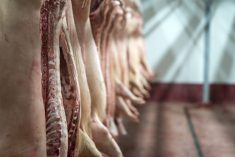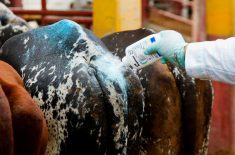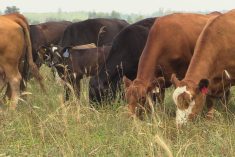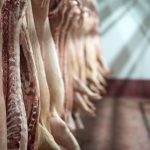The national BSE surveillance system has confirmed a six-year-old Alberta dairy cow as Canada’s first case of BSE in almost a year.
The 77-month-old animal was confirmed Feb. 18 to have had the brain-wasting disease, making it Canada’s 18th domestic case since 2003.
As per Canadian Food Inspection Agency policy in place since 2009, the case wasn’t going to be formally reported until March 10 in the agency’s monthly roundup of reportable livestock diseases across the country.
However, reports have trickled out in the past several days through various Canadian and U.S. sources and the CFIA on Thursday confirmed those.
Read Also
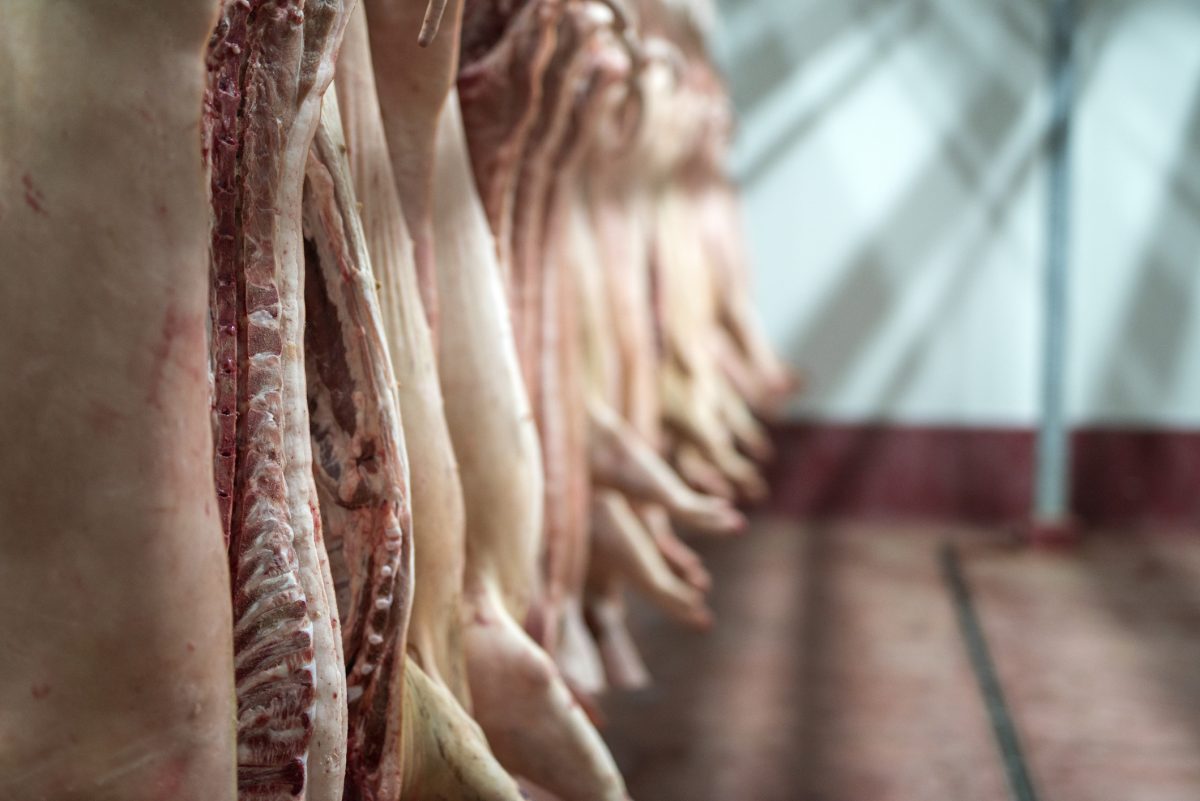
U.S. livestock: Cattle slip back, hogs gain
Chicago cattle futures slipped back on Friday after Thursday’s pause. Hog futures crept upward. Most-active December live cattle futures closed…
The case will then also be reported to the World Organization for Animal Health (OIE) as per Canada’s international obligations for disease reporting.
The agency said a full investigation following international guidelines is already underway, with the cow’s birth farm already identified.
No part of the animal’s carcass entered the human food or animal feed systems, the agency said.
The infected cow’s age and location, CFIA said, are “consistent with previous cases detected in Canada.”
The case is No. 13 for Alberta’s cattle herd, compared to four from British Columbia and one from Manitoba. That’s not counting an Alberta-born BSE-positive animal that was found in Washington state in 2003 and is often credited as a Canadian BSE case.
The case won’t affect Canada’s “controlled-risk” BSE status with the OIE and “should not affect exports of Canadian cattle or beef,” CFIA said.
“The detection of a small number of additional BSE cases is fully expected as Canada continues progression to the eradication of the disease.”
The latest case marks Canada’s first since Feb. 25, 2010, when the disease was confirmed in a 72-month-old beef cow, also from Alberta.
Over 313,000 cattle in Canada have been tested for BSE since the country’s first domestic case was discovered in Alberta in May 2003, the agency said.


